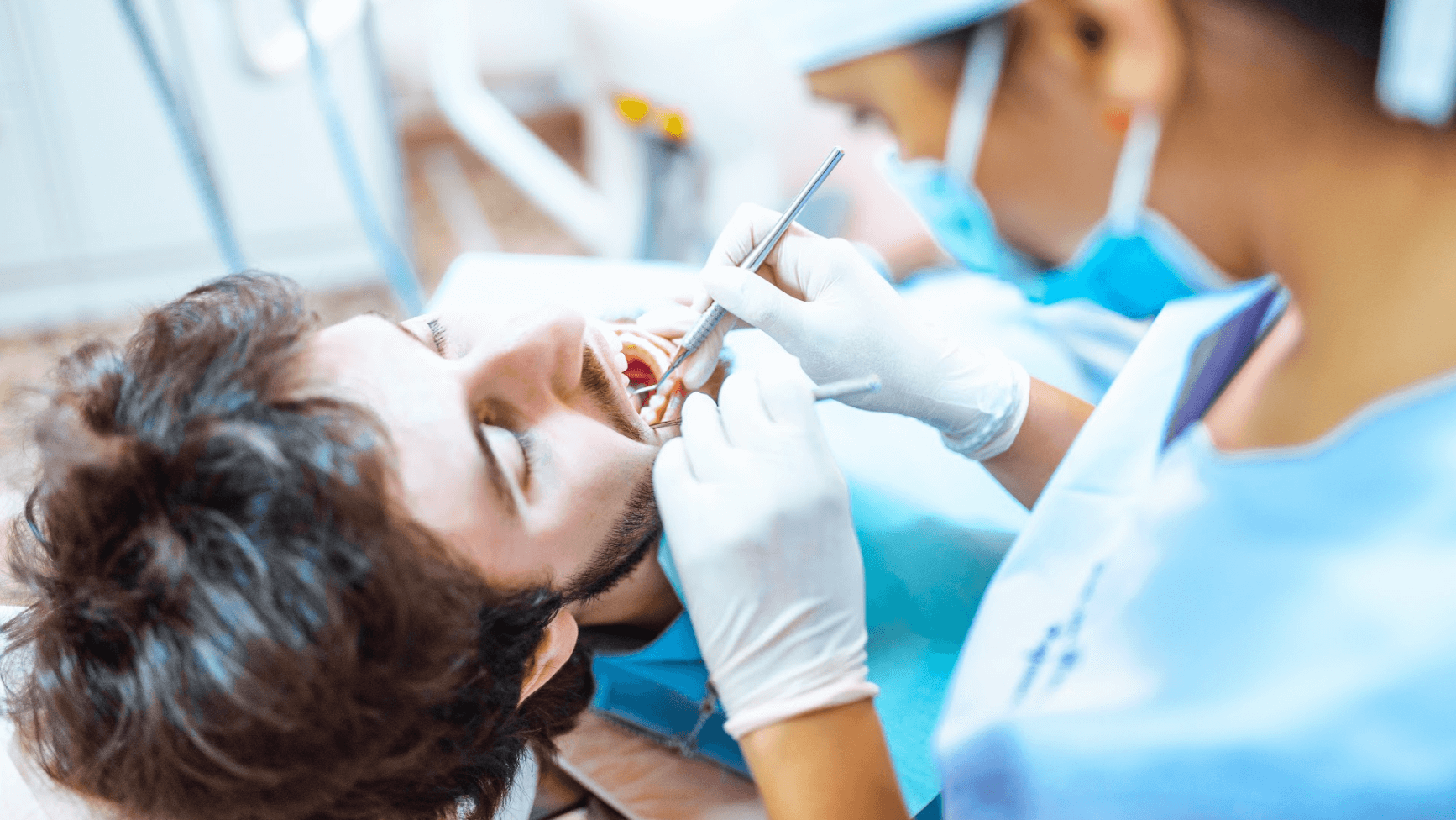Can A Broken Tooth Cause Gum Disease?
&srotate=0)
A broken tooth may seem like just a cosmetic issue, but it can lead to more serious dental concerns, including gum disease. When a tooth breaks, cracks, or chips, it creates an entry point for bacteria, which can lead to infection, inflammation, and potentially even gum disease if left untreated. '
At Premier Periodontics, our team understands the importance of treating cracked teeth and managing any resulting gum disease to maintain optimal oral health. Contact one of our offices in and around Bellevue, WA, including Seattle, Redmond, Everett, Kirkland, Mercer Island, and Olympia.
How can a broken tooth lead to gum disease?
When a tooth breaks or cracks, it can expose the sensitive inner layers beneath the enamel, such as the pulp and root, making it easier for harmful bacteria to infiltrate these areas. These bacteria often settle into the crevices of the damaged tooth and can gradually spread to nearby gum tissue, triggering an infection. As the infection progresses, it can lead to inflammation in the surrounding gums, which, if left untreated, can develop into gum disease. Additionally, the rough and uneven surfaces of a broken tooth can be difficult to clean thoroughly, creating an ideal environment for bacteria to accumulate and increase the risk of infection and inflammation in the gums.
What are common broken tooth infection symptoms?
Identifying infection early can help prevent the spread of bacteria to the gums. Some symptoms of a broken tooth infection include pain, swelling, sensitivity to hot and cold, and bad breath. You may also notice a change in the color of the tooth, which can be a sign that the nerve inside is damaged. These symptoms indicate that infection may be present, and prompt treatment can prevent the issue from advancing to gum disease. Common infection signs include:
- Persistent pain or throbbing
- Sensitivity to hot, cold, or sweet foods
- Swelling near the broken or cracked tooth
- Bad breath or an unpleasant taste in the mouth
What does gum disease look like?
Gum disease often starts subtly but becomes more apparent as it progresses. Early signs of gum disease can include red, swollen, or bleeding gums, as well as tenderness around the affected area. Additional signs of gum disease may include:
- Bleeding when brushing or flossing
- Receding gums, causing teeth to appear longer
- Loose or shifting teeth
How can cracks in teeth be prevented?
While accidents happen, there are steps you can take to protect your teeth from cracking or breaking. Using a mouth guard while playing sports, avoiding very hard foods, and steering clear of habits like chewing on ice or pens can reduce your risk. If you grind your teeth at night, wearing a night guard can help prevent cracks from forming due to pressure.
By taking these preventive measures, you can protect your teeth from cracking and reduce the risk of complications, including gum disease.
When should you seek treatment for a broken or cracked tooth?
If you notice a cracked or broken tooth, it's important to seek treatment from one of our Seattle, Everett, Bellevue, or surrounding area locations right away to prevent complications like infection or gum disease. At Premier Periodontics, we provide comprehensive care to repair damaged teeth and treat signs of gum disease that may have resulted from a cracked tooth. Prompt treatment can help save the tooth, relieve pain, and protect your gums from further issues.
Protect your smile in Bellevue, WA
If you have a cracked tooth or suspect an infection, reach out to the team at Premier Periodontics in Bellevue, Everett, Kirkland, Mercer Island, Olympia, Redmond, or Seattle, WA. We're here to help with specialized treatments to help restore your smile and maintain gum health. Contact us today to schedule a consultation and keep your oral health in top shape!